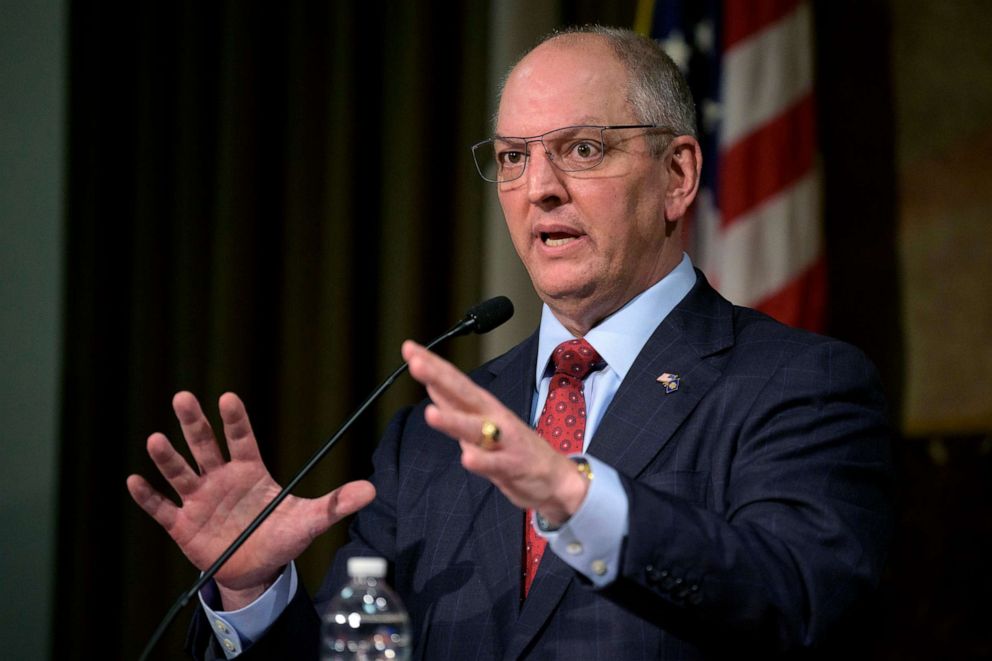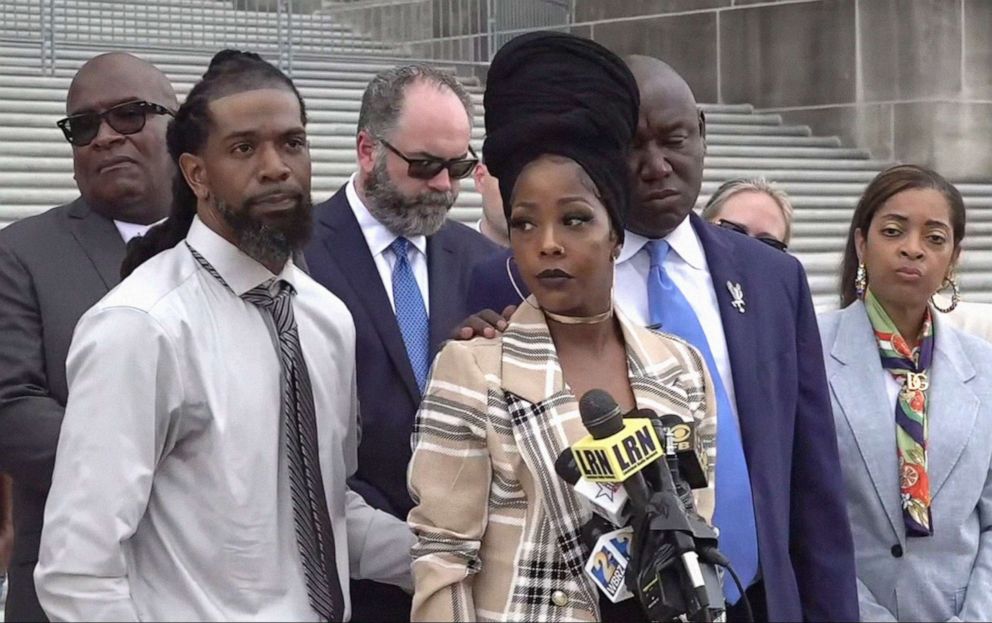A pregnant Louisiana woman says she will be traveling out of state next week to get abortion care after she was denied an abortion for a fetus with a fatal abnormality because it still has cardiac activity. By the time she gets the abortion, Davis will have had to carry her pregnancy for 6 weeks after she made the decision to terminate the pregnancy.
“Basically, they said I had to carry my baby to bury my baby,” Nancy Davis said at a press conference Friday. “I want you to imagine what it’s been like to continue this pregnancy for another six weeks after this diagnosis. This is not fair to me and it should not happen to any other woman.”
Davis says the fetus was diagnosed with acrania, a rare, lethal fetal abnormality in which the fetus does not have a skull. She said her doctors told her the fetus would die shortly after birth.
Davis learned of the fetus’s diagnosis at around 10 weeks of pregnancy, when her doctors encouraged her to get an abortion. After agreeing to get one, she was denied an abortion because there was still fetal cardiac activity, she said.
“Ms. Davis was among the first women to be caught in the crosshairs of confusion due to Louisiana’s rush to restrict abortion. But, she will hardly be the last, America. She will hardly be the last because the medical team feared repercussions if they provided Miss Davis with an abortion. She had to look out of the state for safe, trustworthy care,” her attorney Ben Crump said at the press conference.
Crump told reporters that he has received “at least a dozen” calls from women in similar situations, saying they are all “heartbreaking.”
He called what Davis has had to endure “inhumane” and said Louisiana has put her and her family through “mental anguish.”
“By imposing themselves between Miss Davis and her doctors, Louisiana lawmakers inflicted unspeakable pain emotional damage and physical risk upon this beautiful mother,” Crump said.
“Basically, they said I had to carry my baby to bury my baby,” Nancy Davis said at a press conference Friday. “I want you to imagine what it’s been like to continue this pregnancy for another six weeks after this diagnosis. This is not fair to me and it should not happen to any other woman.”
Davis says the fetus was diagnosed with acrania, a rare, lethal fetal abnormality in which the fetus does not have a skull. She said her doctors told her the fetus would die shortly after birth.
Davis, a mother of three, is fundraising online to cover the cost of traveling out of state to get an abortion. According to a webpage shared online by Crump, she has raised over $30,000 by Friday morning and will seek abortion care in North Carolina.
A trigger ban banning nearly all abortions in Louisiana arguably went into effect after the U.S. Supreme Court ruled to overturn Roe v. Wade in June. On July 24, a district court issued a preliminary injunction stopping the law from taking effect, but that injunction was lifted on Aug. 1.
Davis says she was told by Woman’s Hospital in Baton Rouge, Louisiana, where she sought care, that the procedure was not covered by Medicaid in Louisiana and would cost her thousands of dollars, according to a statement from Crump last week.
Women’s Hospital declined to comment on specific patient information, but said “As medical providers, Woman’s Hospital stands by our mission to provide the best possible care for women in our community, and supports medical decisions made between a physician and their patient that comply with all state laws and policies.”
Louisiana Gov. John Bel Edwards signed two abortion bills into law in June that ban most abortions in the state and criminalize providers who perform the procedure.
One of the bills strengthened a 2006 trigger law on the books. Previously, abortion providers faced prison terms of one to five years and fines between $5,000 and $50,000. The new law increases these penalties to prison terms of one to 10 years and fines between $10,000 and $100,000.
The second bill makes it illegal for anyone to send abortion pills by mail to a Louisiana residence. Those who do could face one to five years in prison and fines up to $50,000.

Criminal charges cannot be brought against a woman seeking an abortion under these laws. The laws also do not make exceptions for rape or incest, despite Edwards expressing his support for those exceptions.
Crump criticized the state’s laws saying they resulted in confusion among abortion providers and said he and Davis both fully support the ongoing lawsuit challenging Louisiana’s trigger bans. Crump also called on the governor and state legislature to hold a special session to address what he said is a “public health catastrophe.”
“Come back from your August vacations and make sure that these vague laws are actually clear so that other women are spared the mental anguish and the mental torment that Miss Nancy Davis is having to endure,” Crump said.
In Louisiana, any provider who performs an abortion after 15 weeks of pregnancy could face up to 15 years in prison and a fine of up to $200,000, Crump said, citing a law signed by the governor in June.
“Now, what doctor is going to take that risk on laws that are vague and ambiguous?” Crump said. “This painful decision is best left to a woman and her doctor.”
Louisiana state Sen. Katrina Jackson, the lawmaker who wrote the state’s strict abortion ban, told ABC affiliate KALB in Alexandria, Louisiana, that the law is being misunderstood and Davis should have been able to receive an abortion under one of the exceptions listed in the law, for “medically futile” pregnancies.
Representatives for Jackson did not immediately respond to ABC News’ request for comment.
In a letter to Woman’s Hospital, Louisiana Attorney General Jeff Landry also claimed this abortion would not be illegal under the state’s laws, saying the hospital could have, and still can, terminate Davis’ pregnancy, but chooses not to do so, according to a copy of the letter sent to ABC News by Landry’s office.
Crump pushed back against this claim.
“To the Louisiana legislators who are glibly blaming the hospital for not understanding the language of the law we say that’s hypocrisy. This is exactly the outcome that many believe they sought, to put such a chilling effect on doctors that they would refuse to perform abortions in any and all circumstances,” Crump said.
Gov. Edwards’ office did not comment on the Davis case and directed ABC News to Louisiana’s Department of Health, but they did not immediately respond.




